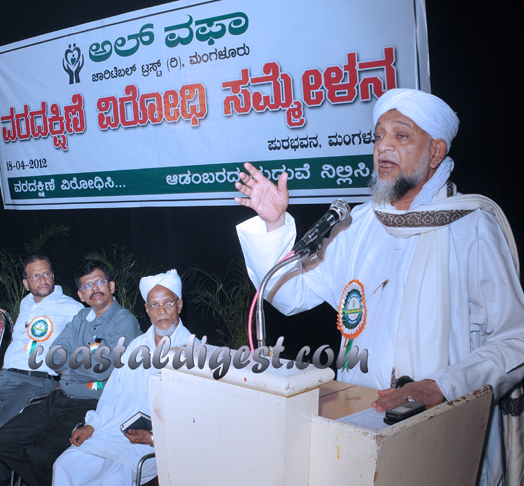
Mangalore, April 18: Terming dowry as a 'curse' and an 'epidemic' afflicting the community, Mangalore Qazi Twaqa Ahmed Musliyar on Wednesday urged affluent sections of the community to take a pledge in the public that they will shun dowry and desist from extravagant marriage celebrations.
Speaking after inaugurating the 'Varadakshine Virodhi Sammelana' here at Town Hall under the aegis of Wafa Charitable Trust, Mangalore, the Qazi insisted that the problem cannot be solved by mere speeches and sermons by the Qateebs and the scholars.
“The problem can be solved only through change of heart. We have to change the mindset of the people. Today, every parent thinks about conducting his or her son/dauther's wedding in a grand manner. But, according to Islam, marriage can be solemnized in the presence of just two witnesses. As per Islamic traditions, marriage is a very simple and easy process. But unfortunately, we have converted this into a huge problem,” the Qazi said.
Quoting verses from Quran and the traditions of the prophet, Twaqa Ahmed Musliyar, exhorted the community members to come forward and enroll names of their son/daughter in a registrar stating that they would not take dowry and would conduct the marriage in a simple way.
“This can be one way of solving the problem. We should also ask youth of marriageable age to come forward and declare that they would desist dowry and follow austerity during their wedding,” he said and declared that 'mass marriages' are not the permanent solution to the deep-rooted problem of dowry.
Explaining how dowry has become a menace for Muslim community both in India and abroad, the Qazi said, many parents are not able to marry off their daughters even though they have crossed the marriageable age as they are not able to meet the requirements of the groom and his parents. “The problem acquires a different dimension in the Arabian countries. In several middle-east countries, youths are not able to get married because of the demand for huge money from the parents of the girl. Although, Islam makes it mandatory for the groom to give 'mehr' before marriage, the bride and her parents are making things difficult for the young males, by putting forth unreasonable demands. In several gulf countries, the government had to intervene to help out economically backward men in their bid to get married. The banks are also offering loans to prospective bridegrooms,” he said.
Umar U.H., general secretary, Al Wafa Charitable Trust, who presented a paper titled 'How can we build a dowry-free society', insisted that dowry was an anathema in Islam, and was not found during the Prophet Mohammed's period or the period of Khilaphat in Islam.
“Islam has clearly laid down that a man should give mehr during the wedding to his wife and this has to be fixed prior to the marriage. Unfortunately, we see it being transformed into a mere ritual today,” he said.
Dealing on the ill-effects of dowry, he said, the demands for dowry could also lead to a spurt in inter-caste marriages. “Families are becoming pauper by selling off their home and other properties just to get their daughters married. Those who do not have any property to sell borrow money from banks or financial institutions and entangle themselves in the trap of loan. A good number of marriages are today breaking down because dowry continues to play a predominant role even after marriage and the feelings of trust and love get sidelined. Many Muslim women are undergoing harassment and abuse because of dowry. The dowry menace is also leading to polygamous marriages with the greedy men going for new alliances after getting a taste of the ill-gotten money,” he said.
On the issue of extravagance and lavishness during the wedding, he highlighted the need to creare awareness in the community about simple marriages. He also flayed spending lavishly for the invitation and urged the people to bring it to the notice of the people at the time of accepting the invitation.
However, he insisted, that it was not wrong on the part of the well-off families to hold their weddings according to their prestige. “When two well-off families get ready to celebrate their marriage, they would invariably have to invite more number of people in conformity with their prestige, requirements of their field and profession. They will also have to go for spacious auditoriums accordingly. They will have to provide good food for the invitees. Such marriages cannot be called as extravagant marriages. However, if someone just for the sake of prestige borrows money during marriage, that can be termed as squandering of wealth,” he observed.
He urged the youth to register their protest against dowry and extravagant marriage functions. “Dowry is not just a problem of the poor. It has also taken the rich in its fold. It is a bad custom. We can form a dowry-free society if there is fear of God in the minds of the people along with the fear of having to face a protest,” Mr. Umar observed.
Responding to the paper, Abdul Raheem Teekay, founder president of the Kendra Beary Sahitya Parishat, Mangalore, said it would be a futile exercise if we did not get to the bottom of the issue when discussing issues like dowry. He also said that it was necessary to deconstruct the popular myths while finding a solution to the problem of dowry. “It is easy to blame the Ulemas and the rich for the menace. But we should also try to understand how such customs become socially inevitable for a young boy who with his limited earning has to invite his family and friends for his wedding reception,” he said.
NKM Shafi Saadi, president, Karnataka Wakf Board, Mysore Region, said dowry was an unislamic and evil custom, which is rampant all over the State. However, reacting to the pleas for declaring it as haram (forbidden), he said scholars do not have the jurisdiction to issue such a fatwa. “It has to be based on the teachings of Quran and Hadith,” he observed.
B.A. Mohammed Haneef, Working president of Akhila Bharata Beary Parishat, Mangalore, took objections to the veiled defence of 'extravagant wedding celebrations' in the paper presented by Umer. “This was uncalled for. I am also disappointed by the speech of the Qazi, who still thinks change of heart is the solution. He should admit that scholars and religious leaders have a huge role to play in the eradication of the menace,” he said.
Mohammed Badruddin, president of Al Wafa Charitable Trust, delivered a welcome speech. He said as many as 30 marriages of poor couples had been solemnised by the organisation last year. S.B. Yusuf Musliyar, Khateeb of Kanjalkodi Jumma Masjid, recited verses from Holy Quran. Abdul Razak Ananthady compered the programme.
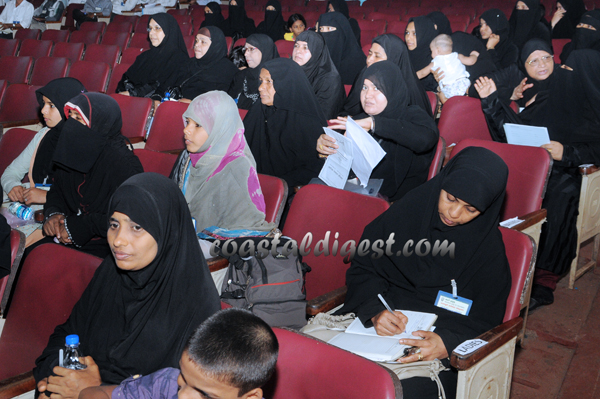
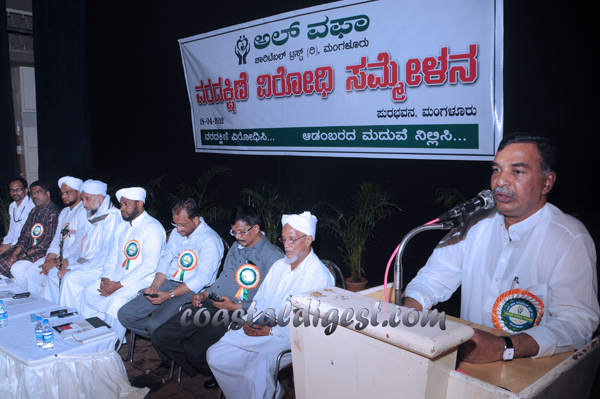



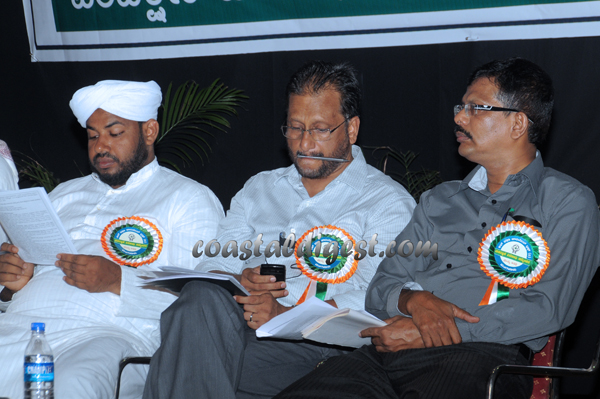
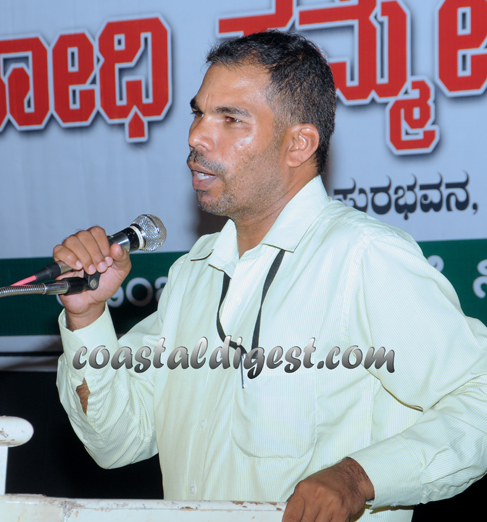
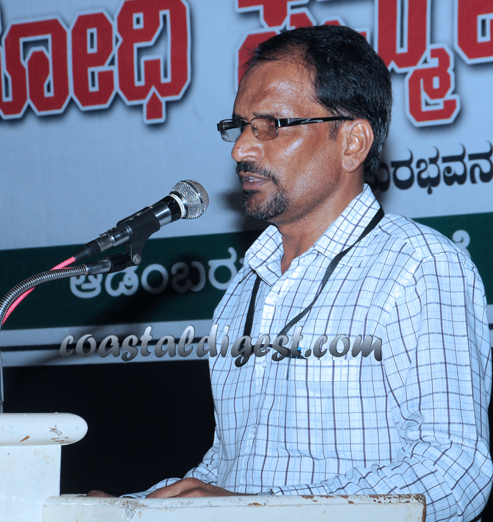
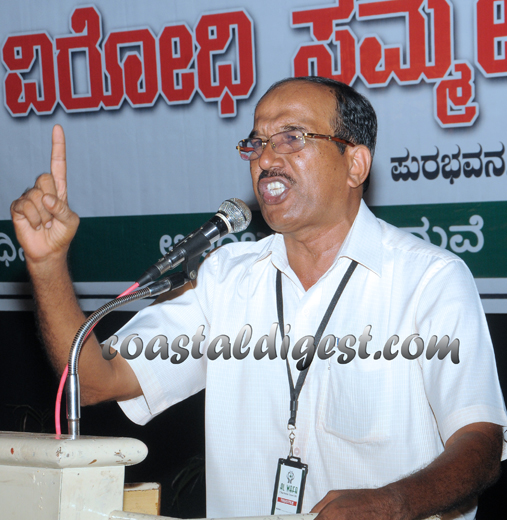

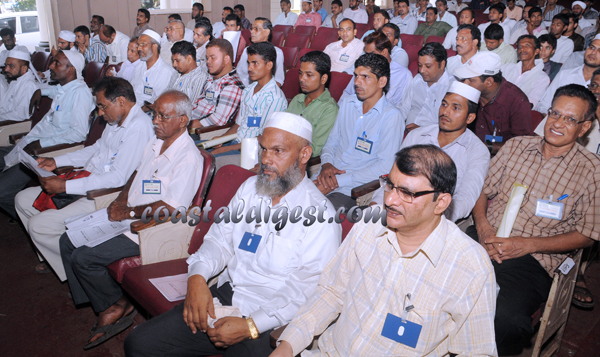
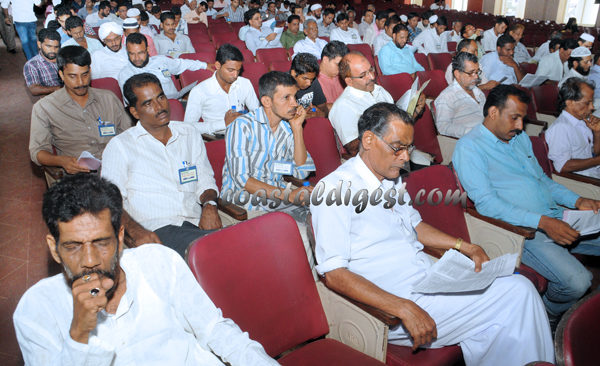
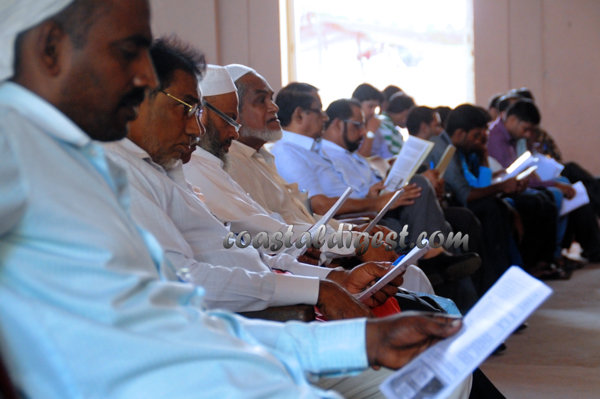
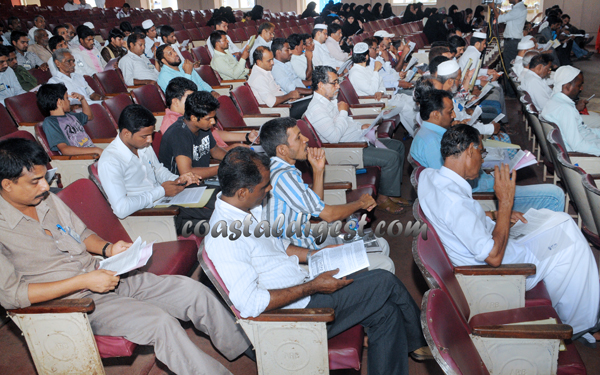
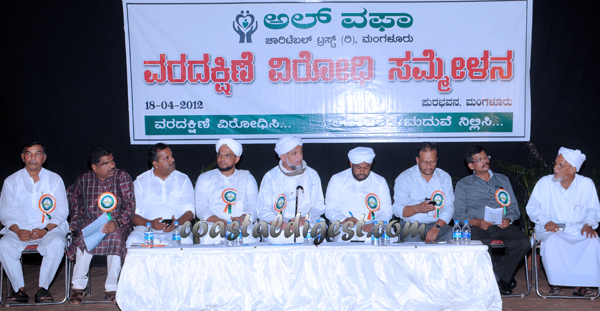
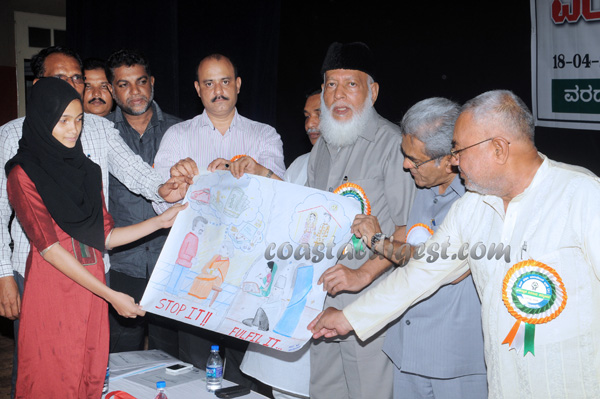
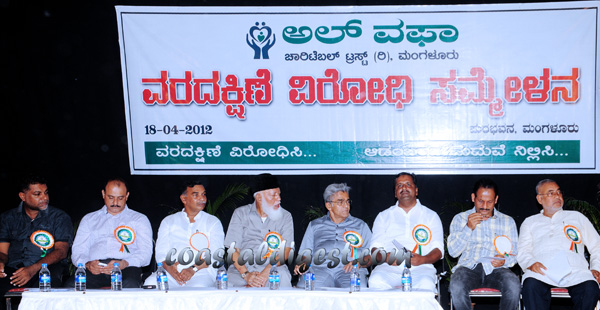
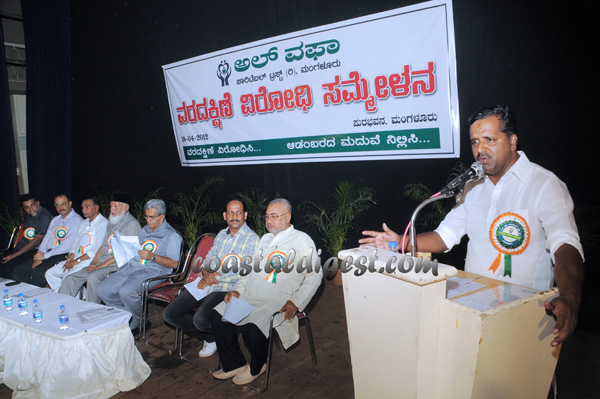
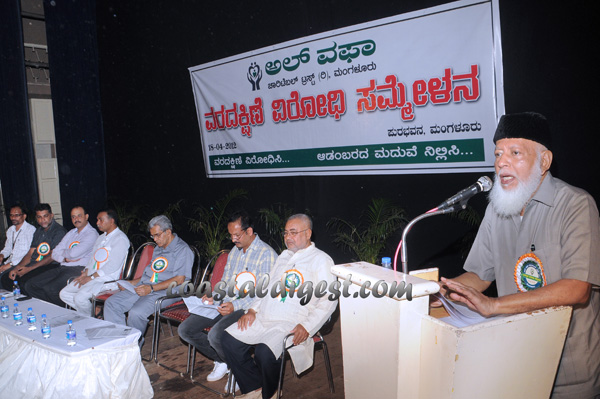
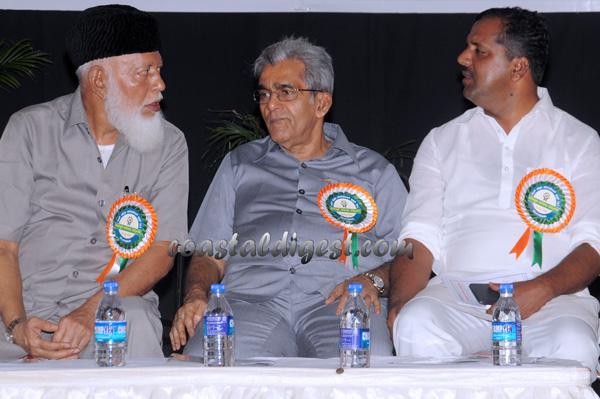
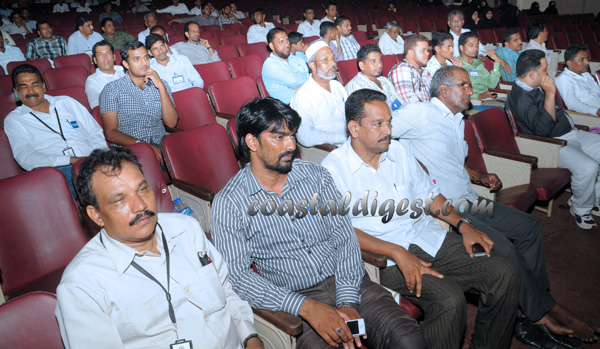
















Comments
It's fantastic that you are getting ideas from this article as well as
from our dialogue made here.
Here is my web blog; best digital stage
piano: http://empresasmondejar.com/?option=com_k2&view=itemlist&task=user&id=7…
Great post.
Stop by my web page :: benefits of vit c serum: http://Web.hannel.cn/comment/html/index.php?page=1&id=121690
I really like what you guys are up too. This sort of
clever work and exposure! Keep up the superb works guys I've included you
guys to my blogroll.
Look at my website; best vitamin c serum: http://www.kakajs.com/comment/html/index.php?page=1&id=139539
Great delivery. Sound arguments. Keep up the amazing spirit.
My site: vitamin c serum reviews: http://infolog.mr/?option=com_k2&view=itemlist&task=user&id=509726
Hey, I think your blog might be having browser compatibility issues.
When I look at your blog site in Safari, it looks fine but
when opening in Internet Explorer, it has some overlapping.
I just wanted to give you a quick heads up! Other then that, amazing blog!
Feel free to surf to my blog: skin serum benefits: http://kristenbellrd.com/?option=com_k2&view=itemlist&task=user&id=1012…
Hey! I could have sworn I've been to this site before but
after checking through some of the post I realized it's new to me.
Anyhow, I'm definitely glad I found it and I'll be bookmarking and checking
back frequently!
Feel free to visit my website :: best portable digital piano weighted keys: http://phpweb.xa95.net/comment/html/index.php?page=1&id=11567
Having read this I thought it was extremely informative.
I appreciate you taking the time and effort to
put this article together. I once again find myself spending way too much time both reading and commenting.
But so what, it was still worthwhile!
Feel free to surf to my website Tyrell: http://www.jingking.com/comment/html/index.php?page=1&id=6353
That is a good tip particularly to those
fresh to the blogosphere. Brief but very precise information… Thanks for sharing this one.
A must read article!
Also visit my homepage :: Melanie: http://tool2008.com/comment/html/index.php?page=1&id=11779
Why people still make use photos
of under eyelid cysts: http://onlinecatalogue.co.za/seller/cjvrick1035/ to read news papers when in this technological world all is existing
on web?
Wow, marvelous blog layout! how to get a six
pack fast for kids: http://www.harbourstate.de/index.php/component/k2/itemlist/user/3261 long have you been blogging
for? you make blogging look easy. The overall look of
your website is wonderful, as well as the content!
I'm extremely inspired with your writing talents and also with
the layout in your weblog. Is that this a paid subject
matter or did you customize it yourself?
Either way nicotine stay alcohol in system how long (www.syllogosdelmouzos.gr: http://www.syllogosdelmouzos.gr/?option=com_k2&view=itemlist&task=user&…) up the excellent high quality writing, it is rare to peer a nice weblog like
this one these days..
Just desire to say your article is as astounding.
The clarity in your post is simply great and i can assume you are an expert on this subject.
Fine with your permission allow me to grab your feed to keep updated with forthcoming post.
Thanks a million and please continue the gratifying work.
Feel free to visit my webpage; best abs
exercise workout six pack abs fashion for men 50: http://som2ny.com/groups/how-to-get-6-pack-abdominal-muscles-for-males/
Add new comment